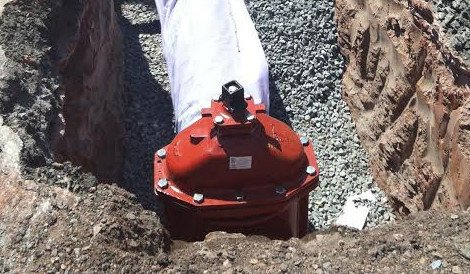While the US National Security Administration will reportedly pay US$2m a year for treated waste water to cool its newest Maryland data center and another $40m for the pump to bring the water to the facility, the deal is likely to drastically reduce the spy agency's operational expenses in running the data center.
Regular potable water would potentially cost the NSA two to three times as much as the “reclaimed” waste water it is planning to buy from Howard County, a neighbor to Fort Meade, the US army base where the data center is being built. The pumping station will supply 5 million gallons of water per day once the data center comes online in 2016, The Washington Post reported.
While not standard practice, using treated recycled water in data center cooling systems is fairly common in the industry. In addition to cost savings, companies that take this route get to claim that they have chosen the environmentally-friendly alternative to using potable water.
According to The Post, the treated waste water that will be delivered to the NSA data center in Fort Meade would otherwise be dumped into a nearby river.
Examples of companies that use recycled waste water in their data center cooling systems include Google and Microsoft, as well as data center providers such as Equinix and DuPont Fabros. Another data center provider, RagingWire, is planning to use reclaimed water for its newest data center in Ashburn, Virginia.
Chris Thames, senior director of critical facilities operations at NTT Communications-owned RagingWire, said potable water would cost the company two to three times more than recycled water in Ashburn. “Their product will be very advantageous for us to use,” he said, referring to the water RagingWire is going to buy from Loudoun Water, the local utility.
The most common argument against reclaimed water in data centers is that facility operators have to install extra equipment and put the water through additional chemical treatment processes on site to bring it to condition acceptable for using in cooling infrastructure.
This does not always have to be the case, Thames says. RagingWire's agreement with Loudoun Water is that the water that comes to the data center is clean enough to not have to go through additional treatment.
Common chemicals in recycled water that may cause problems for a data center operator are ammonia and chloride, he says.
The NSA announced plans to build the Fort Meade data center in June 2013. The 600,000 sq ft building will house 70,000 sq ft of raised floor and use a total of 60MW of power.
The government plans to invest US$565m in the project.
Because the NSA has been under fire following revelations about its surveillance practices that came out of documents leaked by its exiled former contractor Edward Snowden, activist groups critical of the agency have lobbied state officials in Utah (home to another massive NSA data center) to prevent local governments to provide utilities to the agency, according to The Post.
While nothing similar has happened in Maryland yet, a leader of one of the groups told the newspaper that he planned “study the Howard deal.”

